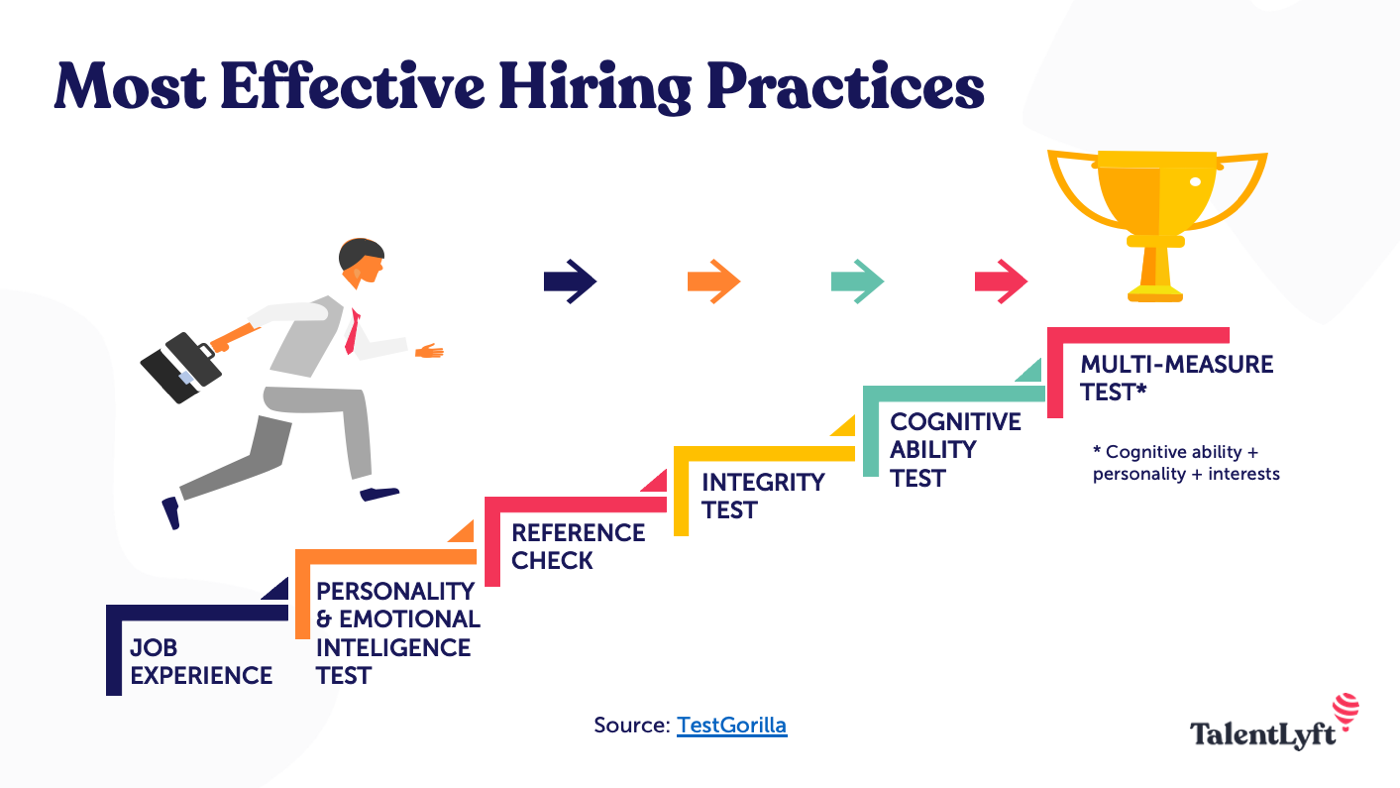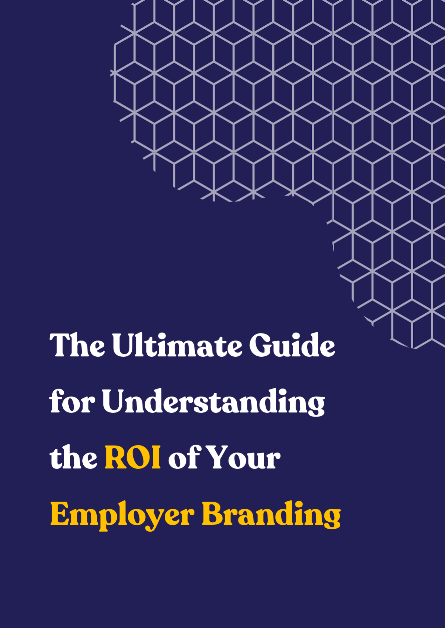![https://adoptostaging.blob.core.windows.net/article/lqB6zzPd9E23NRNsTbks8w.png]()
Here's a little secret: The truth is that the most accurate assessment method is only 50% accurate. You heard it well. Despite all your efforts, you still have a 50-50% chance to hire the right person for the job.
So, how can you be different and give your candidates the experience they look for while hiring only the top talent for your company?
Don't Let Bias Affect Your Hiring Decisions
Let's open up the article with one interesting example of an institution convinced that they were doing a flawless job at assessing candidates.
All up until the seventies, orchestras around the globe took pride in their hiring process for new members. All candidates were asked to perform the same piece of music with their instruments. The best one wins! However, after some time, women started to complain that men were getting hired more often than they did and proposed a blind test. So, everything would be the same, except now, the jury wouldn't be looking at the performance, and as they thought, could have no knowledge about whether it was a woman or a man performing.
Now, they taught, everything was perfect. However, again, women started to complain that the ratio of men and women in the orchestra wasn't realistic. The new solution they proposed was adding the carpet to the room so that the jury wouldn't hear any shoe voices when the candidate is approaching - implying that women's heels might impact the decision. Finally, the orchestra performed the right way of assessing their candidates and increased employee diversity.
Thanks to their readiness to rethink their, at the time, the current state of hiring, the orchestra found a way to assess essential skills while keeping the process as unbiased as possible. This shows how important it is to evaluate your candidates' knowledge of the job they will perform at the end of the day.
Let's go back to the office setting for a second and think of how a hiring process looks like for a standard office job. Employers mostly conduct a "typical" process by screening their prior experience and reading their initial motivation for the position. Afterward, the candidates usually undergo an interview phase, potentially some personality testing, and a practical assignment. And, as elaborate as the process may sound, the companies are still facing the most significant turnover rates in history - with an average of 57.3%, with voluntary turnover being around 29% in 2021. And, what's even more interesting in this case is that the average turnover rate for high performers was around 3% this year. This indicates that finding a great candidate for the job will bring you a high performer and drastically decrease the turnover rate when assessed properly.
Where Does it Go South?
So, what is wrong in the hiring process that makes companies hire so much talent that doesn't last?
If we think of the orchestra example, we'll see that assessing what's essential for the job - which is, in this case, the level of musical technical skills is what matters the most. Besides the sheer technical skills, you should try your best to eliminate any other factors when deciding about a candidate's abilities. On the other hand, let's think of what an interview looks like for a regular office job. We'll see that there, the interview usually starts with a common question: "Tell me a little bit about yourself…" - or, in other words - from the beginning, we are not assessing what's essential for the role.
Here are a few other examples of how recruiters make mistakes when assessing candidates for the job:
Having a candidate go through several interview stages
Candidates words over deeds
Being unaware of what is your assessment assessing
Having a Candidate Go Through Several Interview Phases
The length of the hiring process is becoming more and more problematic over time. Companies are currently taking around 50 days to hire a new employee, especially bigger companies, leaning towards more than one job interview. In addition, since there are multiple stakeholders involved in the decision in bigger organizations, it has become common to have an HR person, a team lead, and sometimes even one more supervisor or a team member talking to the person getting hired for the position.
Not only does this not add to the accuracy of your hiring process, but it also diminishes it and leaves more space for bias. The interview process becomes less about testing skills and more about finding a good culture fit that cannot be assessed accurately through a conversation at the end of the day.
By conducting so many interviews, the result might backfire for you and your company since the candidate might get frustrated with its length and experience decreased satisfaction with the process while at the same time not giving you any valuable additional information.

Candidates Words Over Deeds
In addition to the previous section, companies make a common mistake when looking for a perfect culture fit, which they assess through interviews while completely neglecting candidates' practical skills. For example, companies often believe that by highlighting that they cherish certain traits, like teamwork, goal-orientation, and problem-solving skills, and finding those keywords in candidates' cover letters or during an interview, they will see if the candidate is a good fit for the company. Which basically, makes no sense.
Let's take one very practical example. Let's say you are hiring a mid-level product designer for your software company. Indeed, this person needs to be a team player to work together with developers, marketing, and other designers to carry on the project. This person also needs to be goal-oriented and have problem-solving skills for your project to get done on time and be complete. However, if this person mentioned these traits in their cover letter or if you ask a blunt question during an interview - "Do you consider yourself a team player?" we assure you that everyone will answer the same. And, you will get a 100% strong YES from all candidates. But does this mean that every product designer is also a great team player? Definitely, no.
Instead of asking, try creating situations and setting up scenarios for candidates testing their actual ability to work in teams. For example, conduct a group interview, ask them to collaborate on a short project, and ask about their thinking process afterward. Examine their behavior and see who is goal-oriented, a team player with problem-solving skills! You'll end up assessing their skills and culture fit at the same time! These keywords are not just your shiny toys making your company modern and hip - if you want to be taken seriously among the candidates, you should try to make them a reality.
Need a tool to assist you with the assessment process?
With TalentLyft, you can tailor your assessment based on the position you are hiring for and always make sure to offer all your candidates equal and structured experience!
Find out more! Being Unaware of What Is Your Assessment Assessing
When conducting interviews, employers often ask their candidates a similar set of questions, checking their background, motivation for the job, knowledge about the company, and analyzing their personality. Unfortunately, they fail to recognize with such interviews that they rely too much on their gut feeling and leave too much space for personal biases.
One experienced recruiter once gave us great advice at TalentLyft, about looking for clues and not necessarily the precise answers. For instance, when the candidate arrives at the interview, a simple question about whether they would like to have something to drink can say a lot about their character. If you are looking to hire a person who is uncompromised and not scared easily and gives out an honest answer without hesitating about what type of coffee they would like to have - you just might have found yourself a Head of the sales department. This is only an example and not the only thing you could be looking for.
Ultimately, the importance lies in mapping out what you would like to assess for your candidates and finding ways to evaluate it while always being aware of your criteria and essential skills and traits you are looking for.
So, What Makes a Good Example?
As anyone working as a recruiter or a hiring manager would know, it takes a lot more than reading one article to hire top candidates that would stay long and be a high performers. This is because so many aspects make your employees great at what you do, and it is far easier to prove yourself wrong about the candidate than actually to find a perfect fit for the position. Maybe that is why even the best interviewers can say that they are only 5 out of 10 times sure about the quality of candidates.
However, setting up structured interview processes and using standardized assessments for specific skills will highly increase your chances of hiring the best talent. Your goal should always be to know what you are assessing and try to eliminate all distractions, potentials for bias, and subjective standpoints.








![Boolean Search for Recruiters [Actionable Guide]](https://adoptoprod.blob.core.windows.net/article/7wyu_xAg806Tm_lmFg71Rw.png)








